Bishop's Waltham Coving Installation (SO32): Softening the even, hard lines that exist where ceilings meet walls is a design choice that might suit you. This can be achieved by the use of coving or fancy mouldings. Whether the use of coving is in or out of fashion these days is hard to figure as it seems to go in and out of favour, but it is still used to embellish many a home in Bishop's Waltham. Fashion trends, however, should not dictate whether you have coving installed in your property or not, that should be entirely down to personal preference alone. Do you want sharp, modern lines between your walls and ceilings, or smooth, classic transitions? The choice is of course, yours!
What is Coving? - Coving is a shaped section of moulding, that's used for decorative purposes and to cover the sharp angle between a ceiling and a wall. Materials such as duropolymer, gyproc, PVC, polyurethane, plaster, MDF, expanded polystyrene, plastic and hardwood are used to make coving.
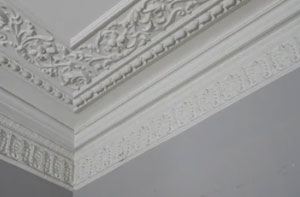
Together with a variety of materials, you will also need to select a shape and design such as egg and dart, cyma recta, Edwardian, Victorian, art deco, dentil, ovolo, step, cavetto and ogee (or cyma reversa).
Coving can be a subtle yet impactful addition to any room, providing a finishing touch to your interior design. Its curved shape can soften the transition between ceilings and walls and give your home a more polished look. The extensive selection of styles and materials for coving can make it challenging to select the best one for your property. To make the best coving choice for your home, it's important to consider both your individual preferences and the home's style. To achieve the best outcome for coving installation, it's essential to make sure that the process is done to a high standard.
All these alternatives can make it a challenge to make up your mind about just what it is that you want. It will all become considerably more straightforward when you get advice and guidance from a professional Bishop's Waltham coving installer who knows his/her stuff. You obviously want to get the highest quality coved finish on your Bishop's Waltham home, and getting expert help will put you on the right track.
While new coving installations may be the forte of your local Bishop's Waltham coving installation expert, they will normally also take on repair and restoration projects. This is important to keep your decorative mouldings and coving looking their best. This might include repairs to cornices, dado corners, ceiling roses, panel mouldings, coving, dado rails, corbels, wall plaques, fire surrounds or picture rails.
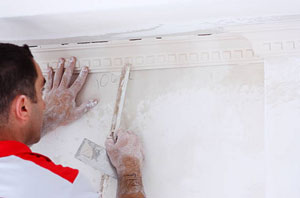
When considering tradesmen for your coving work you have a few choices. You could find a specialist coving installer in Bishop's Waltham, you could use a plasterer, or in the case of wood mouldings, a joiner. Before you actually hire anybody it is wise to check into their level of experience in work like this. A careful and diligent approach to this work is required in order to get the high quality finish you should be looking for.
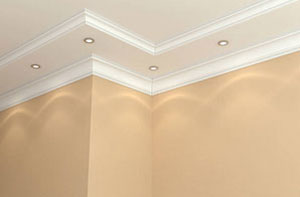
You should not automatically go for the cheapest coving installer when looking through the estimates you have received. Having to bring in somebody else, because your first (cheap) choice resulted in a shoddy standard of workmanship is something you should avoid. You want your coving to look gorgeous once it is in place, so choosing the right tradesman for the job is your main concern.
When you're looking for plasterers or coving installers in Bishop's Waltham, there are a few ways in which you can set about it for example you can make use of one of the trade portal such as Local Heroes or Rated People, you could have a look in local classified listings or newspapers, you could check out Social Media such as Facebook or Instagram or you can pay a visit to the FMB (Federation of Master Builders) website and use their search facility for approved and vetted local plasterers. You can search for coving related products such as coving corners, coving adhesive, coving packs, coving mitre tools and ceiling roses by going to Jewson, Coving Direct, B&Q or Wickes, and you're able to purchase tools and equipment for plastering and coving (if you fancy tackling it on your own) by searching through the websites of Artex, Tool Station or Screwfix.
Coving installation can be carried out in Bishop's Waltham and also in: Wickham, Upham, Ashton, Hedge End, Horton Heath, Mislingford, Boorley Green, Swanmore, Fair Oak, Shirrell Heath, Wintershill, Hillpound, Waltham Chase, Southampton, Durley Street, Lower Upham, Newtown, and in these postcodes SO32 1AN, SO32 1NY, SO32 1PD, SO32 1EN, SO32 1AD, SO32 1HZ, SO32 1AR, SO32 1SS, SO32 1BW, and SO32 1AF. Local Bishop's Waltham coving specialists will most likely have the dialling code 01489 and the postcode SO32. Verifying this should confirm that you are accessing local coving fitters. Bishop's Waltham home and business owners are able to benefit from these and numerous other similar services. If you wish to get an estimate for coving installation, you can do so by simply clicking on the "Quote" banner.
Plaster Coving Bishop's Waltham
Plaster coving is a traditional method of decorative moulding. It requires two people with experience and a high level of skill to install correctly. Plaster coving is one of the oldest ways to decorate walls in Bishop's Waltham. It is made from lime and gypsum that are consolidated with hessian fibre. Once dried, this material hardens into a smooth, solid stone. This material is often used to install ceiling roses and coving.
Before installing plaster coving, plan and mark its layout. The length of each piece should match the length of the adjacent wall or ceiling. The length of the coving should be as accurate as possible, and each piece should be level. You can then trim the pieces to eliminate gaps. Then, apply a thin layer of coving adhesive to the join where one piece of coving meets the next. This should ensure a strong bond and prevent cracks from appearing in the future. However, the installation of plaster coving is best left to the professionals, and local coving fitters will be able to provide quotes for its installation.
Plaster coving is a decorative plasterwork element that ties the walls and ceiling together. It is typically fixed in the wall-to-ceiling joint and can be used in lighting troughs, coiffured ceilings and recessed ceilings. It is available in a variety of sizes and period designs and is highly fire-resistant.
Polyurethane Coving Bishop's Waltham
Giving a very professional look once it is in place, polyurethane coving is both lightweight and painless to install and is a lot stronger than the widely available polystyrene alternative. You can save additional time by using polyurethane coving, since it is usually ready primed and ready for painting. Readily available in a variety of sizes and shapes including astragal, ogee step, rope, bead step, step and plain, duropolymer and polyurethane coving is easy to paint, water resistant, durable, versatile and recyclable. (Tags: Cheap Coving Bishop's Waltham, Duropolymer Coving Bishop's Waltham, Polyurethane Coving Bishop's Waltham).
Maintenance and Repair of Cornices and Coving
In order to maintain a home's condition, it's important to keep the coving and cornices well-maintained and repaired. Although cornices and coving can add an elegant touch to a room, they may suffer from cracks, damage or discolouration over time.
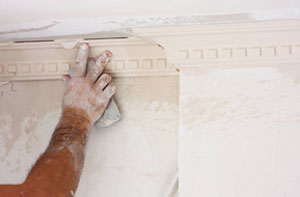
To prevent further damage, it is important to conduct frequent inspections and make timely repairs to identify any problems promptly. Repairs to coving and cornices can be either basic filling of cracks and smoothing rough spots, or complex replacement of entire sections, depending on the extent of the damage. It is important to use the right techniques and materials when repairing coving and cornices to ensure a flawless finish that matches the original design.
Proper repairs and maintenance can help cornices and coving keep their charm and add to the value of a property for many years.
What's the Difference Between Cornice and Coving?
A common question that we're often asked is "Exactly what is the difference between coving and cornice?" and this is rather baffling for many homeowners in Bishop's Waltham. Essentially the reply is that they're one and the same. The main distinction, if you have to make one, is that cornices are extremely elaborate, while covings are relatively simple in design. The expression coving was formerly used for a simple "C" shaped concave moulding that was popular in Bishop's Waltham in the post-world war period. In contrast, cornices typically call for expertise of a master craftsman in Bishop's Waltham, if they're to be put up successfully, because they're usually extremely ornate mouldings.
Wooden Coving Bishop's Waltham
A decorative element that is installed where a wall meets the ceiling, wooden coving adds a touch of elegance to any room in your home. It is produced in a multitude of styles and finishes, from classic to contemporary, to complement various tastes and interior design schemes. The aesthetic appearance of your home is enhanced by coving, which also masks any imperfections or unattractive joints where the ceiling and wall join.
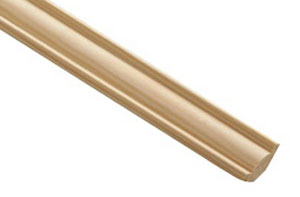
Achieving a seamless fit and professional look when installing timber coving necessitates both skill and precision. The steps include carefully measuring the room, cutting the coving to size, and attaching it securely with nails and adhesive. To align the coving with your existing decor, you may also need to carefully sand and either stain or paint it. Despite some DIYers potentially tackling this task alone, securing professional installation services assures a flawless and long-lasting finish.
Professional installation services take the hassle out of fitting wooden coving. Bringing both the essential knowledge and tools, experienced installers complete the work efficiently and to a superior standard. They handle every aspect of the project, from the first consultation and measuring to the final touches, resulting in coving that beautifully enhances the character of your home in Bishop's Waltham. Opting for expert installation not only saves you precious time but also guarantees that the coving is both durable and aesthetically pleasing. (Wooden Coving Bishop's Waltham).
Gyproc Coving Bishop's Waltham
Gyproc coving, a decorative feature, is used to improve the appearance of the junction between walls and ceilings in Bishop's Waltham. Made out of plasterboard, it is available in a variety of different designs and sizes to fit various room types. Adding a touch of elegance to any space, installing Gyproc coving creates a seamless transition from wall to ceiling and hides any ugly gaps or imperfections.
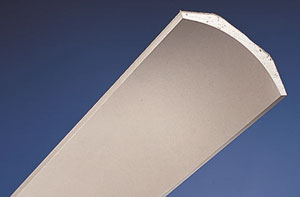
The procedure for installation is fairly straightforward. The coving pieces are cut to the dimensions of the room and subsequently fixed in position with a strong adhesive. Joints and gaps are filled and then sanded smooth to achieve a neat finish. For Bishop's Waltham householders looking to enhance their interiors' aesthetics without the need for extensive refurbishments, Gyproc coving is an accessible DIY project.
The installation of Gyproc coving also offers several practical benefits. At the ceiling-wall junction, it can help cover cracks that sometimes appear over time, offering a cleaner, longer-lasting look. Allowing for further personalisation, coving can be painted to contrast with or match the room's decor. Gyproc coving is a simple and effective way to enhance the beauty and functionality of a room. (Gyproc Coving Bishop's Waltham)
Is Coving a Messy Job?
Coving installation is not the most tidy of tasks. It entails applying adhesive or plaster to the walls and ceilings, then securing decorative moulding in place. This process produces debris, dust, and the potential for spills. Cutting and fitting the coving can also generate waste materials. While professionals employ dust sheets and protective measures to minimise mess, some level of cleanup is typically required afterward. DIYers in Bishop's Waltham may find it messier due to a lack of proficiency. In general, while coving can provide an eye-catching finishing touch to a room, it does involve a degree of messiness that requires management.
What Tradesman Puts up Coving?
Coving installation, a specialised task that enhances the aesthetic appeal of rooms while concealing imperfections in wall-ceiling junctions, is often undertaken by carpenters, painters and decorators or plasterers. Plasterers, with their mastery of decorative moldings, frequently handle coving installation, which involves attaching plaster or gypsum-based strips to the junction between walls and ceilings, ensuring smooth, seamless finishes. Carpenters also install coving, particularly when it's made of wood or MDF (medium-density fiberboard). They meticulously measure, cut, and fit wooden coving pieces to create elegant and intricate designs. Both carpenters and plasterers ensure that coving not only enhances the room's aesthetic appeal but also conceals imperfections in wall-ceiling junctions, providing a polished and cohesive look to interior spaces. Painters and decorators may also handle coving installation, especially when it's made from polyurethane, duropolymer or polystyrene.
Picture Rails
Usually situated a foot or two beneath the ceiling, picture rails are horizontal mouldings that are secured to walls. To avoid causing damage to walls with nails, screws, or hooks, they were created specifically for hanging pictures. Instead of drilling holes in the wall, picture hooks can be placed on the rail, making it convenient to move or change your photos or artwork whenever you please.
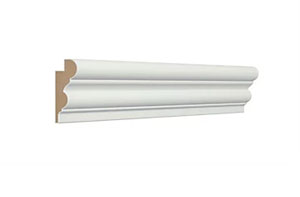
Adding a decorative element and functionality to rooms, these picture rails enjoyed great popularity in homes from the Edwardian and Victorian eras. Though quite often found in older homes, lots of people in Bishop's Waltham continue to install them today for their timeless appearance and practical use. They create a visual diversion on tall and featureless walls, with picture rails contributing to the overall character of the space.
A picture rail is fairly simple to install as a do-it-yourself task, provided you have basic handyman skills. This task includes taking measurements, trimming the rail to the appropriate length, and attaching it to the wall, usually with screws or nails. When in position, the rail can be stained or painted to align with your existing decor, transforming it into a chic and functional feature for any space. If you're unwilling or unable to handle this type of work, you'll need to connect with a local Bishop's Waltham carpenter. (Picture Rail Installation Bishop's Waltham)
Coving Related Tasks

Bishop's Waltham coving specialists will likely help you with cornicing mouldings, bedroom coving installations, cornice installation Bishop's Waltham, Victorian cornices in Bishop's Waltham, ornamental wall plaques, coving refurbishment in Bishop's Waltham, cornicing, polystyrene coving Bishop's Waltham, wooden cornice, duropolymer coving, ceiling rose installation in Bishop's Waltham, egg and dart coving Bishop's Waltham, polyurethane coving, contemporary coving Bishop's Waltham, plaster coving installation, Georgian coving Bishop's Waltham, the installation of dado rails, the replacement of coving in Bishop's Waltham, bathroom coving installation, decorative corbels, bespoke coving, Victorian coving Bishop's Waltham, cutting coving mitres, ornamental plasterwork, oak coving Bishop's Waltham, gyproc coving, ornamental mouldings, plaster coving, Edwardian coving Bishop's Waltham, the cutting of coving and other coving related work in Bishop's Waltham, Hampshire. Listed are just an example of the tasks that are handled by local coving fitters. Bishop's Waltham professionals will let you know their full range of services.
Bishop's Waltham Coving Services
- Wooden Coving
- Decorative Mouldings
- Plastic Covings
- Coving Repairs
- Polyurethane Coving
- Coving Services
- Cornice Installation
- Coving Removal
- Duropolymer Coving
- Dado Rail Installation
- Coving Fitting
- Coving Cutting
- Coving Designs
- Coving Installation
Coving Installers Near Bishop's Waltham
Also find: Ashton coving installers, Lower Upham coving installers, Hedge End coving installers, Waltham Chase coving installers, Wintershill coving installers, Mislingford coving installers, Boorley Green coving installers, Wickham coving installers, Horton Heath coving installers, Hillpound coving installers, Durley Street coving installers, Swanmore coving installers, Shirrell Heath coving installers, Upham coving installers, Newtown coving installers, Fair Oak coving installers, Southampton coving installers and more. People who install coving can be found in pretty much all of these towns and villages. Ensuring professional and accurate coving installation in your property is the result of the expertise brought by these skilled tradespeople. By choosing a certified professional for this task, homeowners can rest assured that the coving will be fitted in the right way, contributing to the all round character and beauty of their homes. By going here, local home and property owners can get coving installation estimates. So, there's no reason not to get started on your coving installation project right away!
 Coving Installation Bishop's Waltham
Coving Installation Bishop's Waltham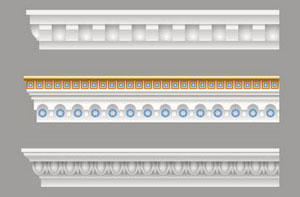 Coving Installers Near Me
Coving Installers Near Me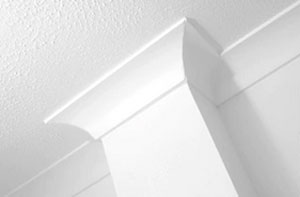 Coving Fitters Bishop's Waltham
Coving Fitters Bishop's Waltham
More Bishop's Waltham Tradespeople: Of course, whenever you happen to be doing home repairs and improvements in Bishop's Waltham, Hampshire, you'll probably be in need of all sorts of different tradesmen and as well as a coving installer in Bishop's Waltham, you may additionally need a window fitter in Bishop's Waltham, a building contractor in Bishop's Waltham, an electrician in Bishop's Waltham, ceiling cornicing in Bishop's Waltham, a plasterer in Bishop's Waltham, a wallpapering specialist in Bishop's Waltham, an emergency locksmith in Bishop's Waltham, a security alarm installer in Bishop's Waltham, wallpaper stripping services in Bishop's Waltham, rubbish removal in Bishop's Waltham, a tiling specialist in Bishop's Waltham, a plumber in Bishop's Waltham, a bricklayer in Bishop's Waltham, a carpenter in Bishop's Waltham, a painter and decorator in Bishop's Waltham, SKIP HIRE in Bishop's Waltham, and other different Bishop's Waltham tradesmen.
More: Cornice Installation, Coving Specialists, Coving Fitters, Cornice Fitters, Coving Fitters, Coving, Coving and Cornices, Coving and Cornices, Gyproc Coving, Cornice Fitters, Plaster Coving, Cornice Fitters, Cornicing Services, Lightweight Coving, Cornice Fitters, Lightweight Coving, Cheap Coving, Plastic Coving, Coving Services, Polyurethane Coving, Wooden Coving, Coving Specialists, Coving Fitters, Cheap Coving, Wooden Coving, Coving Fitters, Polyurethane Coving, Coving Specialists, Cornicing Services, Cornice Installation, Cheap Coving, Gyproc Coving, Cornice Installation, Cornicing Services, Coving and Cornices, Plasterer, Plastering Companies, Plastering Services, Patch Plastering, Rendering.
Coving fitters SO32 area, 01489.
TOP - Coving Installation Bishop's Waltham
Cornices Bishop's Waltham - Cheap Coving Bishop's Waltham - Coving Installers Bishop's Waltham - Coving Fitters Bishop's Waltham - Covings and Cornices Bishop's Waltham - Coving Fitters Near Me - Coving Specialists Bishop's Waltham - Coving Installation Bishop's Waltham - Dado Rails and Mouldings Bishop's Waltham




